Although they are tiny, microplastics are a growing concern as an environmental pollutant, especially in marine ecosystems.
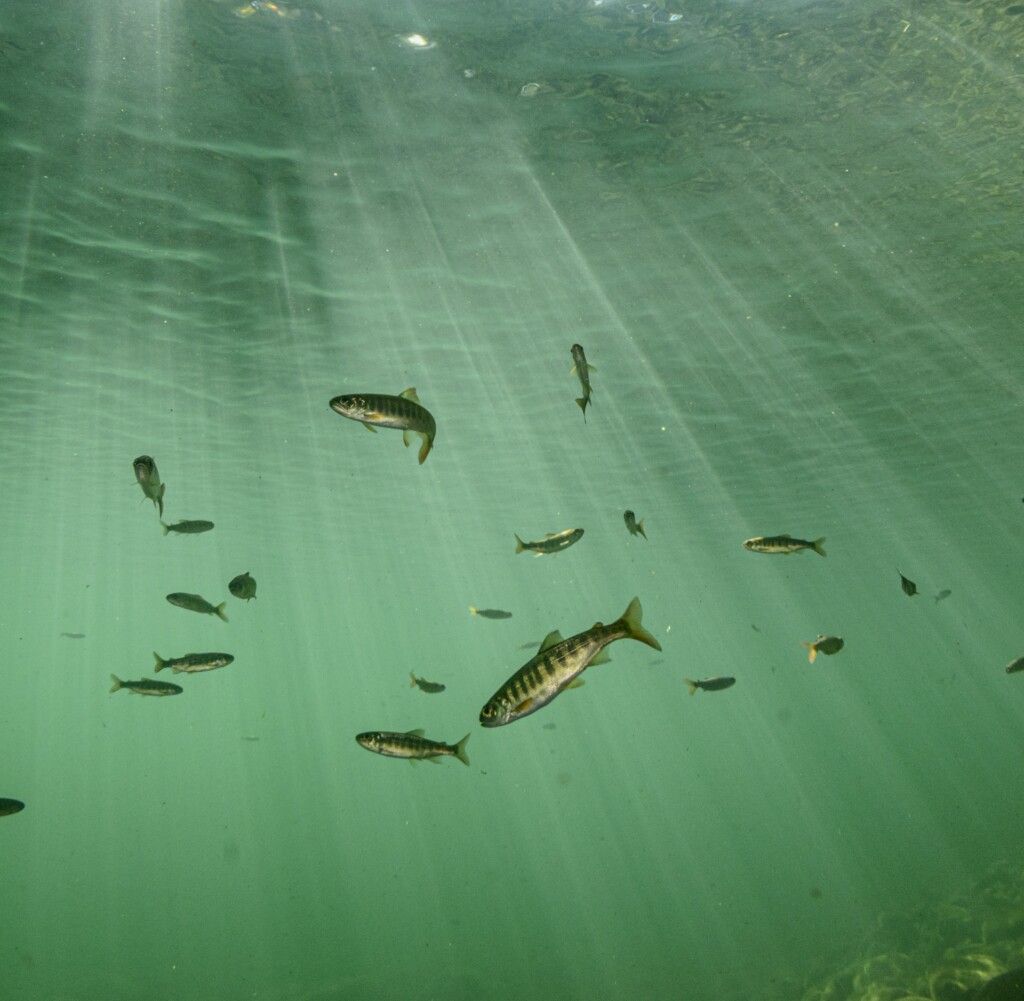
Microplastics make their way through the food web carrying toxins and taking the place of natural nutritious food, so doing your part to reduce your microplastic footprint helps maintain a healthy salmon food web.
Did you know that a large portion of microplastic pollution comes from laundering our clothes – over 35%, in fact! Synthetic fabrics such as polyester and nylon shed tiny plastic fibers every time they are washed. A single load of laundry can release roughly 700,000 bits of microplastic! These particles are so small that they often escape waste water treatment facilities and end up in our waterways and the ocean.
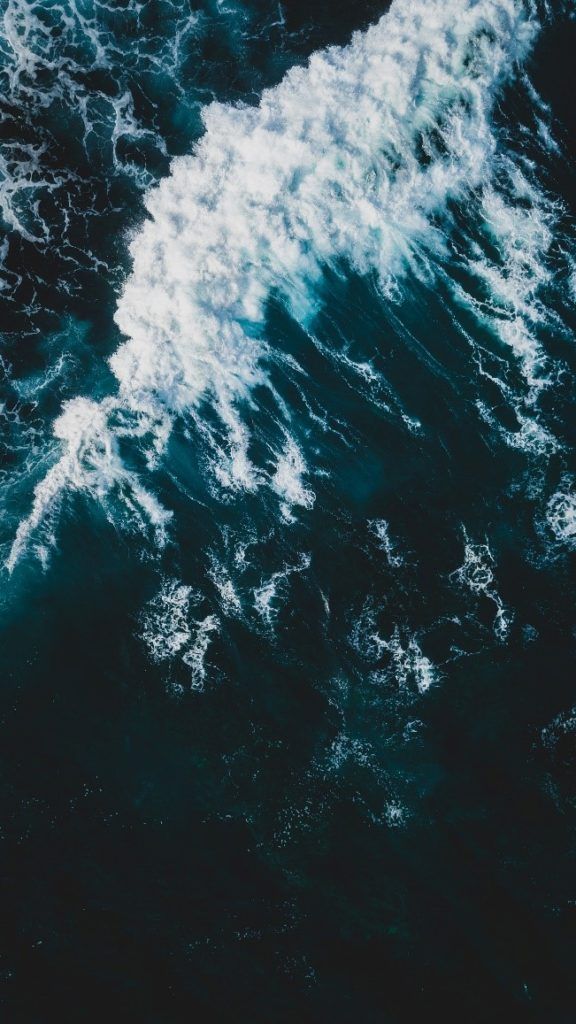
Microplastics can contain harmful chemicals that may leach into the environment and be adsorbed into body tissues. It is not just a problem for a few filter feeding critters, alarmingly, microplastics are making their way through the entire marine food web all the way to our dinner plates!
To our shoreline neighbours like forage fish, killer whales and sea birds, microplastics disrupt feeding and growth patterns by physically filling the stomachs of these animals and reducing the amount of nutrients they absorb. Added chemicals that alter the flexibility, durability or colour of plastics can also impact these animals by building up as toxins in their tissues, a process known as bioaccumulation.
It is critical that we do our part to prevent microplastics from entering the marine environment, because once they are there, they are impossible to clean up.
Luckily, we can reduce microplastic pollution by making some conscious changes to how we do laundry.
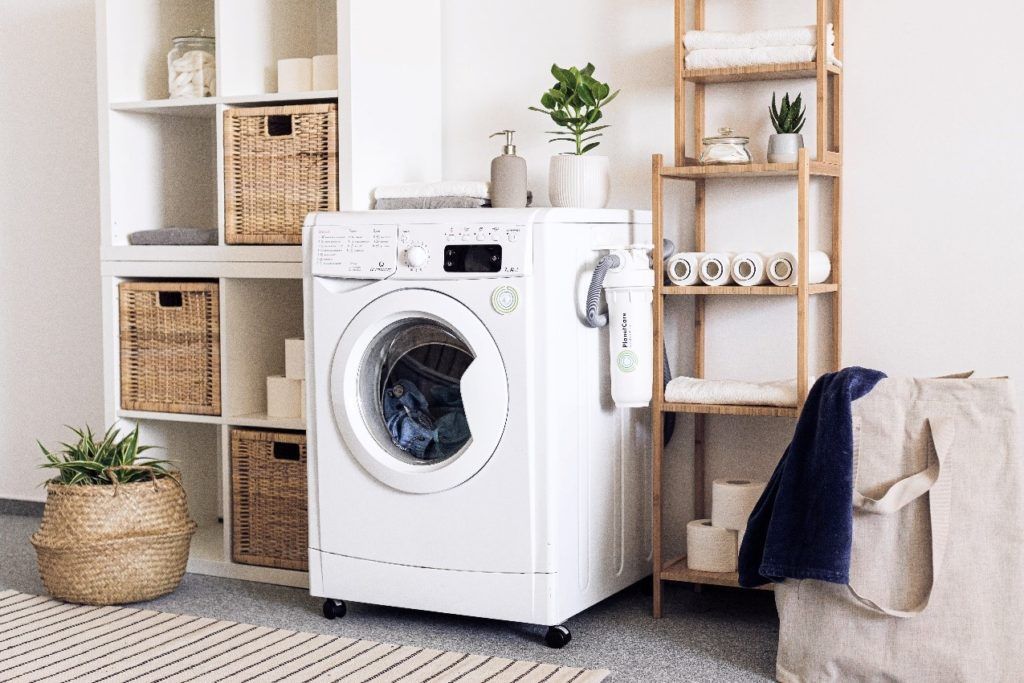
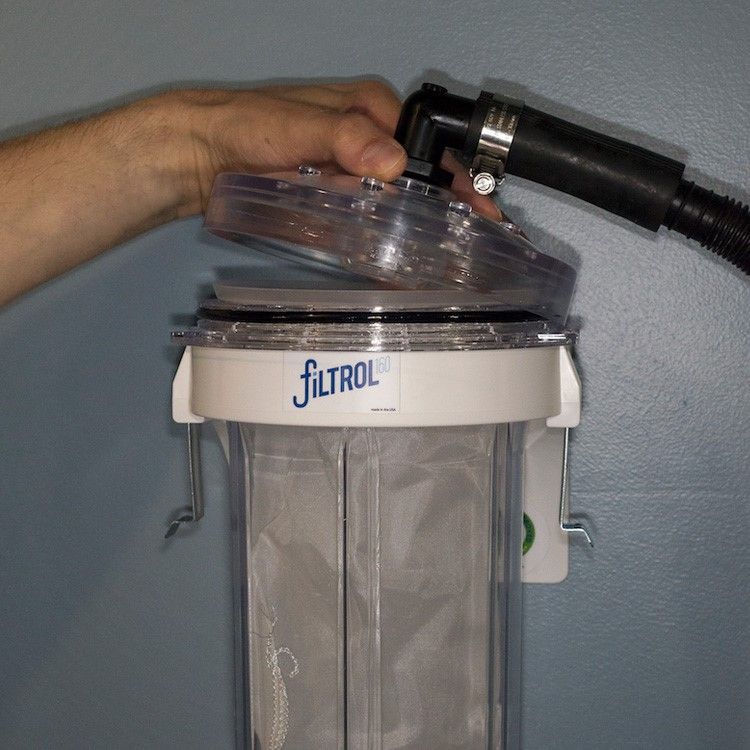

Powdered detergents generate more friction during a wash cycle, and may cause more fibers to break off of fabrics; detergent pods and detergent sheets contain polyvinyl alcohol a type of dissolvable plastic (liquid polymer) that is not easily removed by wastewater treatment plants; liquid detergents are typically packaged in plastic jugs that, if not disposed of properly, can also contribute to the plastic problem; and, some detergents may even have tiny added microplastic beads!
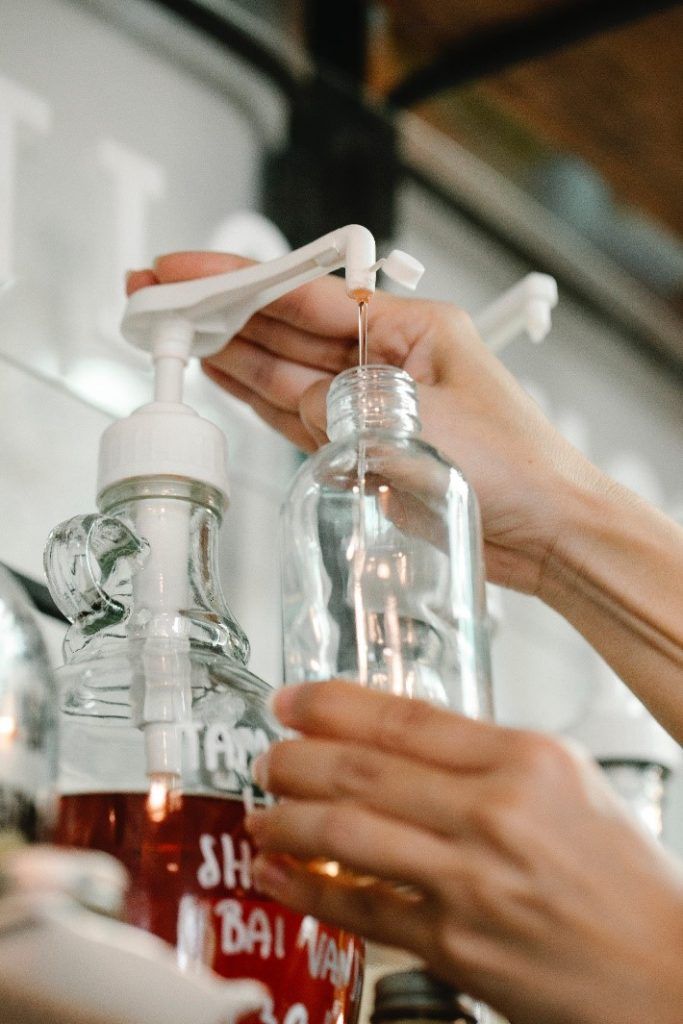
Read more about how to choose a microplastic free detergent in this article from the Ethical Consumer and see how different detergents compare for environmental safety with the Environmental Working Group’s Healthy Cleaning Guide.
The best option is to purchase liquid detergent from zero waste stores that sell soaps and detergents in bulk. You can then bring your own container and refill it again and again! Next best is to source environmentally safe liquid detergent in jugs that are made up of recycled content and/or are easily recyclable (check out our Tool Kit on Decoding Eco Labels).
CBC Article: Your laundry and plastic pollution — which fabrics shed the most microplastics
Oceanwise: Microplastics and home laundry
Follow blue land on Instagram for incredible educational content about the impacts of conventional cleaning products, and what we can choose instead.
Photo credits: Washing machine, Engin Akyurt onPexels; Waves, Eiko Jones, Ivan Bandura on Unsplash; PlanetCare; Filtrol; Cora Ball; Detergent refill, Sarah Chai on Pexels